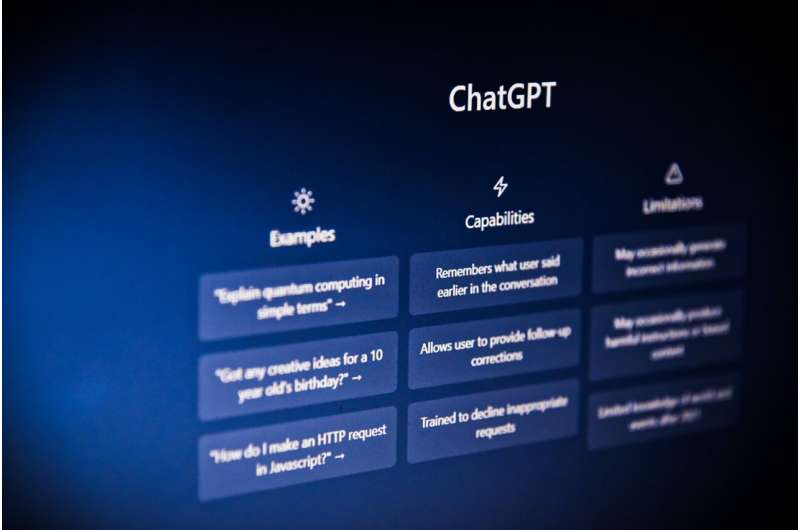
A new study suggests that populations of artificial intelligence (AI) agents, similar to ChatGPT, can spontaneously develop shared social conventions through interaction alone.
The research from City St George’s, University of London and the IT University of Copenhagen suggests that when these large language model (LLM) artificial intelligence (AI) agents communicate in groups, they do not just follow scripts or repeat patterns, but self-organize, reaching consensus on linguistic norms much like human communities.
The study, “Emergent Social Conventions and Collective Bias in LLM Populations,” is published in the journal Science Advances.
LLMs are powerful deep learning algorithms that can understand and generate human language, with the most famous to date being ChatGPT.
“Most research so far has treated LLMs in isolation,” said lead author Ariel Flint Ashery, a doctoral researcher at City St George’s, “but real-world AI systems will increasingly involve many interacting agents. We wanted to know: can these models coordinate their behavior by forming conventions, the building blocks of a society? The answer is yes, and what they do together can’t be reduced to what they do alone.”
In the study, the researchers adapted a classic framework for studying social conventions in humans, based on the “naming game” model of convention formation.
In their experiments, groups of LLM agents ranged in size from 24 to 200 individuals, and in each experiment, two LLM agents were randomly paired and asked to select a “name” (e.g., an alphabet letter, or a random string of characters) from a shared pool of options. If both agents selected the same name, they earned a reward; if not, they received a penalty and were shown each other’s choices.
Agents only had access to a limited memory of their own recent interactions—not of the full population—and were not told they were part of a group. Over many such interactions, a shared naming convention could spontaneously emerge across the population, without any central coordination or predefined solution, mimicking the bottom-up way norms form in human cultures.
Even more strikingly, the team observed collective biases that couldn’t be traced back to individual agents.
“Bias doesn’t always come from within,” explained Andrea Baronchelli, Professor of Complexity Science at City St George’s and senior author of the study. “We were surprised to see that it can emerge between agents—just from their interactions. This is a blind spot in most current AI safety work, which focuses on single models.”
In a final experiment, the study illustrated how these emergent norms can be fragile: small, committed groups of AI agents can tip the entire group toward a new naming convention, echoing well-known tipping point effects—or “critical mass” dynamics—in human societies.
The study results were also robust in using four different types of LLM, called Llama-2-70b-Chat, Llama-3-70B-Instruct, Llama-3.1-70BInstruct, and Claude-3.5-Sonnet.
As LLMs begin to populate online environments—from social media to autonomous vehicles—the researchers envision their work as a steppingstone to further explore how human and AI reasoning both converge and diverge, with the goal of helping to combat some of the most pressing ethical dangers posed by LLM AIs propagating biases fed into them by society, which may harm marginalized groups.
Professor Baronchelli added, “This study opens a new horizon for AI safety research. It shows the depth of the implications of this new species of agents that have begun to interact with us—and will co-shape our future. Understanding how they operate is key to leading our coexistence with AI, rather than being subject to it. We are entering a world where AI does not just talk—it negotiates, aligns, and sometimes disagrees over shared behaviors, just like us.”
More information:
Emergent Social Conventions and Collective Bias in LLM Populations, Science Advances (2025). DOI: 10.1126/sciadv.adu9368
City St George’s, University of London
Citation:
Groups of AI agents spontaneously form their own social norms without human help, study suggests (2025, May 14)
retrieved 14 May 2025
from https://techxplore.com/news/2025-05-groups-ai-agents-spontaneously-social.html
This document is subject to copyright. Apart from any fair dealing for the purpose of private study or research, no
part may be reproduced without the written permission. The content is provided for information purposes only.









